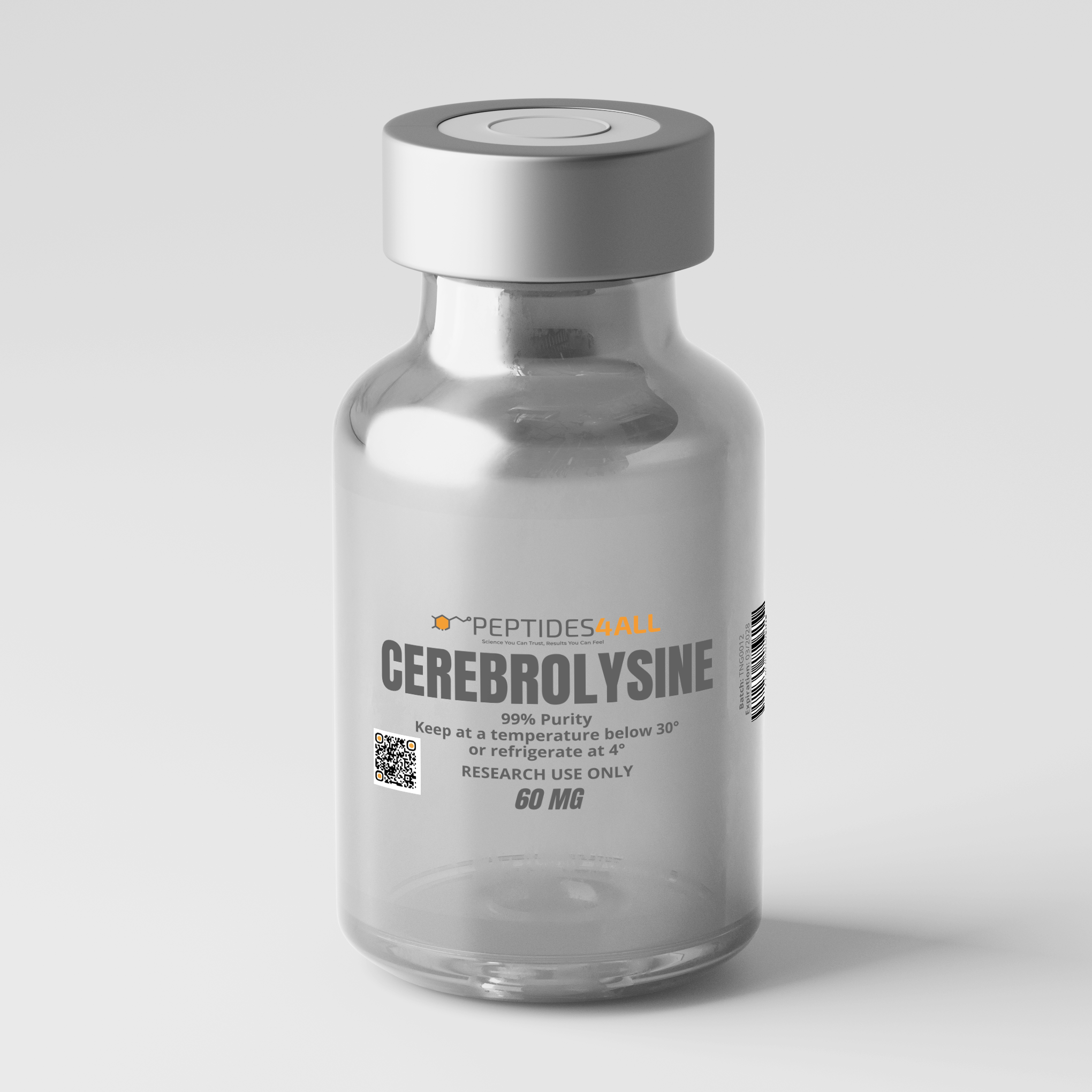Source: Porcine Brain Protein Hydrolysate
Format: Low-Molecular-Weight Peptide Complex
Chemical Description
Cerebrolysin is a neuropeptide preparation produced through the controlled enzymatic hydrolysis of lipid-free porcine brain proteins. This process yields a complex mixture of free amino acids (approx. 85%) and biologically active low-molecular-weight peptides (approx. 15%). The solution is standardized to simulate the functional properties of endogenous neurotrophic factors, specifically Brain-Derived Neurotrophic Factor (BDNF) and Glial Cell Line-Derived Neurotrophic Factor (GDNF), making it a valuable substrate for neurobiological research in vitro.
Research Applications
This biological complex is strictly for laboratory research use in the study of:
- Neuroprotection Assays: Investigation of neuronal viability in cell cultures subjected to excitotoxic or oxidative stress models.
- Neurite Outgrowth: In vitro analysis of dendritic branching and synaptic density in PC12 or hippocampal cell lines.
- Neurotrophic Signaling: Research into the modulation of the PI3K/Akt survival pathway and induction of neurotrophic factor expression.
Technical Specifications
- Composition: Peptides (<10 kDa) + Free Amino Acids
- Source Material: Porcine Brain Proteins
- Grade: Standardized Research Extract
- Appearance: Lyophilized Powder / Sterile Solution
Presentation & Handling
- Form: Supplied as lyophilized peptide in sterile vial.
- Reconstitution: Use bacteriostatic water or 2% procaine; swirl gently (do not shake vigorously).
- Storage: Store at –20 °C, protected from light and moisture. After reconstitution, use according to research protocols and handle under sterile conditions.
Disclaimer: For Research Purposes Only
This content is provided strictly for laboratory research purposes and does not constitute an endorsement or recommendation for any non-laboratory application. The information provided regarding specific peptides is for educational and informational purposes only and must not be construed as medical, clinical, or legal guidance, nor as an encouragement for use in humans or animals.
Peptides described here are solely for use in structured scientific study by qualified researchers. We advise consulting with laboratory safety officers or research experts prior to handling these materials. The expectation of responsible, ethical utilization of this information for legitimate investigative and scholarly objectives is paramount. This notice governs all content on this site.
